The numbers behind clowns in movies
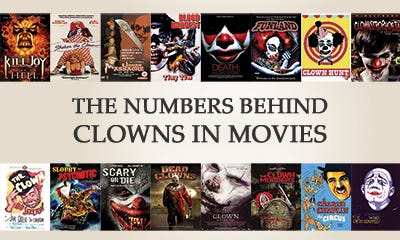
Regular readers will know that I often study topics suggested by members of the public. In the past, they have included subjects such as racial diversity, movie recoupment and public investment in the arts. However this week, most of the questions I have received have been about clowns in movies. Yes, clowns.
To be honest, I'm a bit confused about why the media is currently so fascinated by cartoon-like, buffoonish men with unrealistic hair who destroy any vehicle they're left in charge of (maybe it's got something to do with the American election?)
Either way, the end result of all the clown-based news stories is that I have put together the following movie facts to satisfy your clown cravings.
We're in a clown movie boom
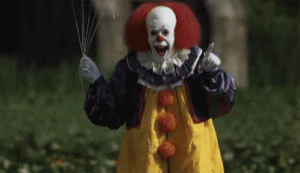
I used IMDb and Wikipedia to identify as many movies as I could which feature clowns as a major character (or key element of the plot). This came to 298 movies in total.
The oldest film I could find is a 1916 silent movie called The New Clown which featured an aristocrat who runs away to join the circus after he (mistakenly) believes he has killed a man.
The first peak for clown-based movies was 1928, which saw the release of films such as Laugh, Clown, Laugh, Spangles and Charlie Chaplin's The Circus. This popularity was short-lived and it wasn't until the 1950s that clown-based movies resurfaced in any number. That decade included movies such as The Greatest Show on Earth, Ring of Fear and Roger Corman's Carnival Rock.
However, it has been in the modern era that clown-based movies really started to rise, with 54% released during or after the year 2000.
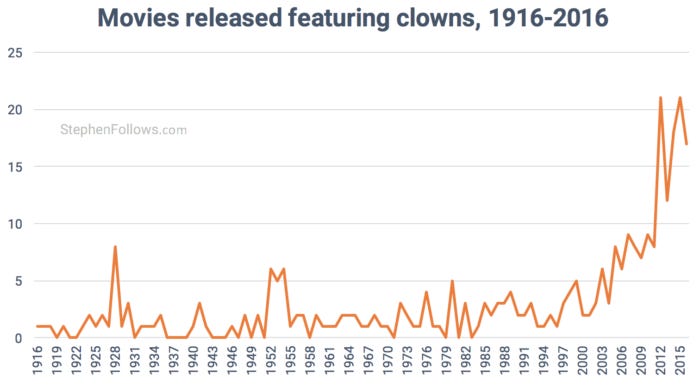
Interestingly, the recent boom in clown movies is the inverse of what's been taking place in the real world of professional clowning. In the 1980s the World Clown Association and Clowns International had over 1,000 members, whereas the figure is now below 100. Time magazine posits that this reduction in clowns is down to "higher standards for clowning, decreasing popularity amongst the younger generation, and an ageing population of current clowns".
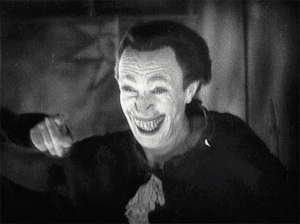
Another factor could be the increase of horror movies featuring evil clowns. Prior to the 1970s, there was only one horror film which featured a clown, and that movie stretched both the definition of 'clown' and 'horror'.
The 1928 silent movie The Man Who Laughs features a lead with a grim carnival freak-like grin - legendary film critic Roger Ebert described the film as "a melodrama, at times even a swashbuckler, but so steeped in Expressionist gloom that it plays like a horror film".
Almost half of all movies featuring clowns that were released during or after 2010 have been horror movies.
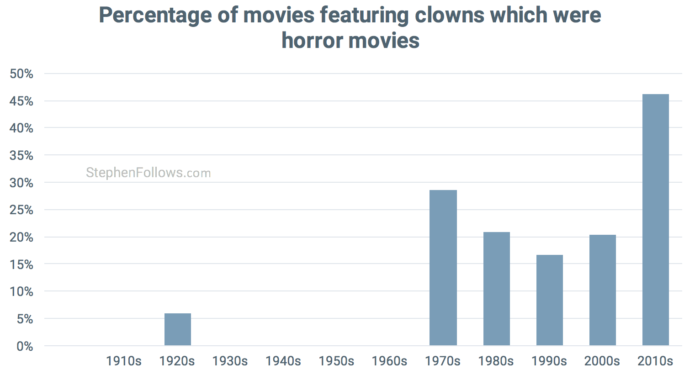
And for anyone who worries that the current clown obsession will burn out - fear not. The following titles are currently in development: A Cotton Candy Autopsy, CarnieVille, Circus Klown, Clown Girl, COULROPHOBIA, The Fable of the Clown and the Hen and the imaginatively titled (and incorrectly spelt) Unititled Clown Project.
Do clowns ruin everything?
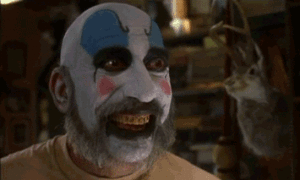
I don’t have time to provide data on “everything” but certainly it seems that clowns ruin horror films. I compared the ratings given by film critics and audiences for horror films featuring clowns between 1996 and 2016, and then for all horror films over the same period.
Both groups felt that clowns were not a welcome addition to a horror flick, although it was the critics who were the most anti-clown.
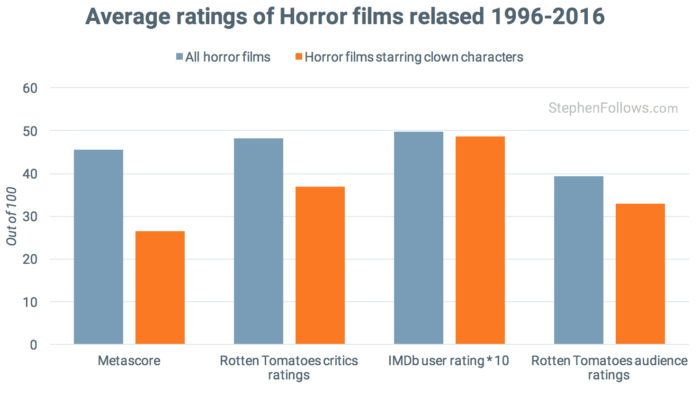
Bringing the horror circus to your living room
Now for the big question of the week: if you’re considering ruining your weekend by watching a marathon of horror movies starring clowns, which movies should you pick?
Thankfully for you, I’ve put together a collection of over 56 hours worth of horrific clown horror movies to pick from:
[table id=92 /]
To give you an idea of what to expect if you watch all of these clown-based horror movies, here is a word cloud from the plots, with the most frequently-used words appearing the largest.
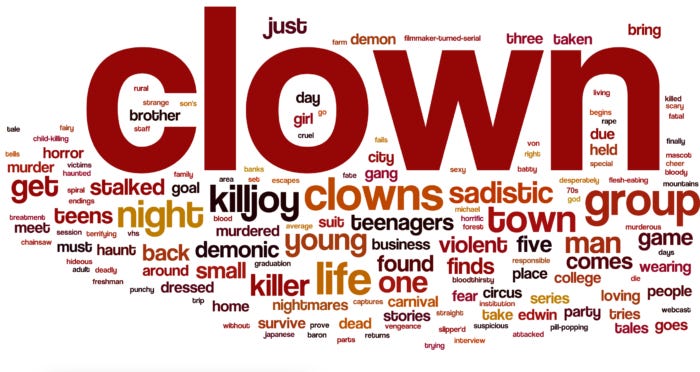
Notes
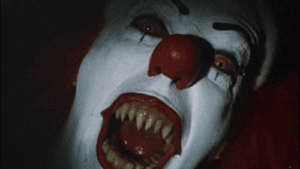
The films referred to today are all feature films listed on either IMDb or Wikipedia which feature clowns as key characters, or as a major part of the plot. I disregarded films which have references to clowns or clown iconography but which don't feature a clown in the normal sense, such as Batman (whose Joker dons clown make-up but is not strictly-speaking a circus clown).
If (inexplicably) you want to read further on the topic of clowns in movies, then here are a few links to start you off:


